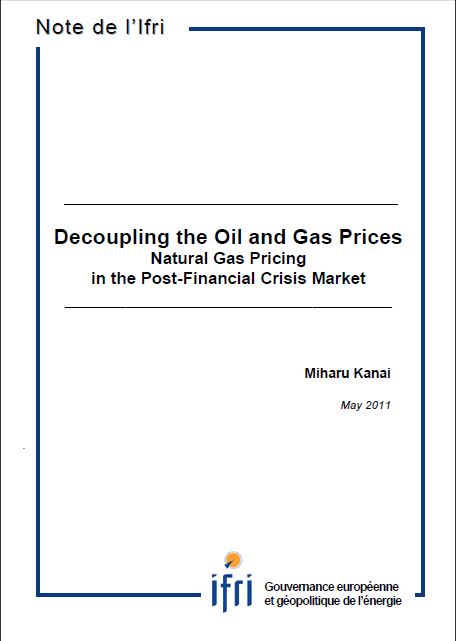Decoupling the Oil and Gas Prices: Natural Gas Pricing in the Post-Financial Crisis Market

This paper looks into natural gas pricing in the post-financial crisis market and, in particular, examines the question whether the oil-linked gas pricing system has outlived its utility as global gas markets mature and converge more rapidly than expected and as large new resources of unconventional gas shift the gas terms-of-trade.
Two opposing natural gas pricing systems have coexisted for the last two decades. On the one hand, there is traditional oil-linked pricing, used in pipeline gas imports by Continental European countries and in LNG imports by the countries in Far East. The other is the system led by futures exchanges in deregulated, competitive markets largely in the UK and the US.
In the first half of 2009, natural gas prices set by oil-linked formulas in Continental Europe were twice as high as market prices at the Henry Hub or the NBP (National Balancing Point). Because of this, oil-indexed Russian imports fell sharply to their contract limits and discussions on de-linking gas pricing started once again. This time, the most vocal were major European gas companies which had to buy expensive oil-indexed natural gas. The same situation is developing in Asia between oil-indexed LNG and the one based on market gas prices. Even traditional oil-indexed LNG buyers in the Far East are insisting on a partial linkage to Henry Hub prices.
Gas pricing formulas in Continental Europe are typically indexed to light and heavy fuel oil. In the 1970s when oil was used to fuel many power stations and large-scale industrial plants, the logic of natural gas directly replacing oil products made sense, but markets have changed significantly over the past two decades. Crude and oil products have been increasingly forced out of power generation and other stationary uses both by price and by policy. Instead, oil is overwhelmingly used as transportation fuel. Therefore, the logic of oil as the replacement comparator for gas is no longer supported by reality.
The financial crisis and economic downturn starting in September 2008 had a profound impact on economic activities including natural gas demand. Global gas demand fell sharply between 2008 and 2009 and for the first time in decades, electricity demand also decreased. With weak electricity markets, fuel competition between spot priced natural gas and coal took place at many power plants.

Available in:
ISBN / ISSN
Share
Download the full analysis
This page contains only a summary of our work. If you would like to have access to all the information from our research on the subject, you can download the full version in PDF format.
Decoupling the Oil and Gas Prices: Natural Gas Pricing in the Post-Financial Crisis Market
Find out more
Discover all our analyses
Korea-EU Direct Investment Links: The Neglected Facet of a Tight Partnership
Despite their difference in size, Korea and the EU have developed over time a strong and deep relation through direct investment flows. Germany dominates the relationship, but there remains ample room for the other EU member-states to further develop their relations with Korea.
The EU and Innovation: When Business Meets Politics
Innovation, entrepreneurship, growth and competitiveness go hand in hand. This short paper looks at two areas where the EU plays a role to help drive innovation: regulation and financing.
A Transatlantic Free Trade Agreement? Weimar Triangle Analyses: French, Polish and German viewpoints on European questions
On an initiative of the German Council of Foreign Relations (DGAP), the Study Committee for Franco-German Relations (Cerfa) of the French Institute of International Relations (IFRI) and the Polish Institute of International Affairs (PISM) are regularly publishing short contributions on a common subject, written by three experts of these institutes. The purpose of these “Weimar Triangle Analyses” is to give the French, Polish, and German views on central questions of European politics and European integration.
What Is a Think Tank?
When I was laying the foundations for the French Institute of International Relations (Ifri)1 in 1978 and 1979, only a select few in France were familiar with the English term “think tank” and had at least an approximate idea of what it covered.
This term has become fashionable but still has no consensual definition.





